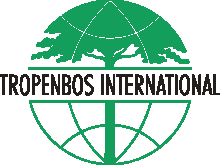Resource information
Widespread palm oil production causes much controversy due to its negative impacts in the tropics. But whatever is said about it, it is big business and getting bigger by the day due to increasing global demands. Alongside this, the size and depth of the social and environmental debates surrounding palm oil production are also growing. As a major globally-consumed commodity, its production in the humid and sub-humid tropics raises concerns due to its impacts on the environment, biodiversity, local communities, smallholder livelihoods, land rights and climate change.
One possible solution proposed is to improve the ‘inclusiveness’ of smallholders who make up a substantial part of the palm oil value chain. This book presents potential opportunities by looking at the experiences, perceptions and perspectives of individuals, companies, institutions and NGOs on what has been done and is being done on the ground to increase the involvement of and benefits to smallholder oil palm farmers. And in doing so, it focuses on the following key questions: How do such actions and their impacts differ between different smallholder types and organizations? How do they differ between countries, regions and corporate contexts? What are the effects of various enabling policy environments? And what do the authors in this edition mean by ‘inclusiveness’?
This ETFRN News edition brings together 24 articles and interviews from around the world that reflect on these questions and it identifies means of improving smallholder inclusiveness in palm oil production and the ones that could be scaled up.



